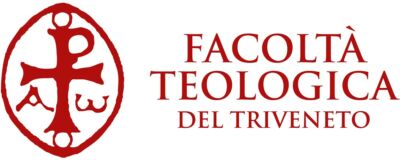

The Post-Graduate Course in Anthropology, Bible, Religions: A Multidisciplinary Approach (ABRAM) helps attendants understand the Bible as a cultural code, capable of indicating typically human dimensions, presenting the book as an occasion of common anthropological reflection.
Through a multidisciplinary approach enhancing the dialogue between theological, philosophical, sociological, anthropological, and psychological knowledge, this post-graduate course explores the cultural wealth of the Bible and the Hebrew, Christian and Muslim traditions.
The goal is providing the tools for a critical judgement on contemporary cultural matters, in light of the biblical interpretation of different religious traditions concerned, by identifying the methods to apply such anthropological considerations in the attendees’ professional sector.
The Post-Graduate Course in Anthropology, Bible, Religions: A Multidisciplinary Approach (ABRAM) stands out for its innovative educational approach, fully reflecting the interdisciplinary and inter-religious nature of the contents provided, and focusing this year on “The Disputed Peace”.
Through a constant dialogue between lecturers from different fields – theology, philosophy, sociology, anthropology, psychology – and from the Hebrew, Christian, and Muslim tradition, the course provides a unique and integrated perspective on the anthropological topics featured in the Bible and linked to the relationship between violence and conflict, justice and forgiveness, hope and future, according to Abrahamic religions.
Lectures, labs and workshops will feature a constant comparison between different perspectives, providing a mutual enrichment of competences, and a deeper understanding of the matters covered.
Interdisciplinary does not just apply to the course’s content, but also to its educational approach, which actualizes the objective of training professionals capable of working with cultural sensitivity in multiple religious contexts, promoting intercultural dialogue for a better understanding of the challenges analysed in the different course modules.
The Post-Graduate Course in Anthropology, Bible, Religions: A Multidisciplinary Approach (ABRAM) is addressed to a wide range of professionals, working in formal and informal educational contexts, and exposed every day to cultural and religious pluralism. Goal of the course is providing the conceptual and anthropological competence resulting from the knowledge of biblical knowledge, allowing them to exercise their profession with greater relevance and cultural sensitivity.
Specifically, the course will provide training and update to the following professional figures:
- School teachers at all levels
- Infancy and early childhood teachers
- Social and healthcare professionals
- Family and intercultural mediators
- Museum, cultural, and PA professionals
- Educational and training path designers
- Journalists and communicators
- Lawyers and legal professionals
- Tourist guides and operators
- Students and graduates in humanities
With its multidisciplinary approach, the Course helps to develop a critical interpretation of our contemporary times, through the lenses of Hebrew, Christian and Muslim tradition.
The career opportunities range from school and educational contexts, to social-training, cultural and entertainment services, and public/private institutions working alongside cultural and religious pluralism, as is the case of contemporary society.
The Post-Graduate Course in Anthropology, Bible, Religions: A Multidisciplinary Approach (ABRAM) includes three interdisciplinary modules, as defined below:
Module 1 – VIOLENCE AND CONFLICT
This module delves into the matters connected to conflict, power and violence dynamics in the Bible, focusing on the relationship between conflict and violence. It provides an insight on the conflictual dimension of our reality, by asking questions such as: What is the relationship between the Bible and violence, with a specific focus on the topic of sacrifice? Why is violence a fundamental aspect of human history? Can violence and conflict be disjointed? Furthermore, it will explore the metaphysical origins of the connection between violence and diversity, and the relation between violence and the sacred, by wondering: How do Hebrew, Christian, and Muslim traditions relate to the concept of violence and conflict today?
Module 2 – JUSTICE AND FORGIVENESS
This module introduces the question: Is there a necessary relationship between justice and forgiveness? It covers the following questions: How do the Scriptures revolutionize the concept of justice? How did the Hebrew, Christian and Muslim religions interpret the concept of forgiveness? Lastly, it covers the relationship between these two principles: How does our approach to justice references forgiveness?
Module 3 – HOPE AND THE FUTURE
Starting from the biblical consideration that hope does not means escaping in the afterlife, but rather a freedom process rooted in our own world, this module explore the terms through which the biblical narration expresses itself in relation to fundamental human needs. It covers the hopes and future of contemporary human beings, by asking: What can we hope for? It delves into the dialectic between resilience and hope, and the possible peace prospective between peoples suffering from wars and from environmental conflicts, according to the vision of the three Abrahamic religions.
The Post-Graduate Course in Anthropology, Bible, Religions: A Multidisciplinary Approach (ABRAM) is organized in close collaboration with the Theological Faculty of Triveneto, a long-standing academic institution, leader in biblical and theological studies, in a unique partnership with the University of Padua. With this synergy, we can enrich the course program through the precious contribution of ordinary professors, enrolled by the Theological Faculty, and expert in Abrahamic religious traditions. Therefore, the interdisciplinary dialogue is constantly fed by direct comparison with leading academics in the field of Hebrew, Christian and Islamic studies, bringing their specific exegesis and interpretations of the Bible. This unique and outstanding partnership between the University of Padua and the Theological Faculty of Triveneto gives the ABRAM Post-Graduate Course an interdisciplinary approach, by promoting a fertile exchange of knowledge, and the encounter between different cultures, combined by the study of this sacred text.
La graduatoria generale di merito per l’a.a. 2025/2026 sarà resa disponibile qui secondo le tempistiche previste dal bando ufficiale.
Information
FAQ
Every module is introduced by a meeting held by the organizing faculty, to offer a summary and a connection between the different modules. There will be three meetings (one for each module) characterized by a multi-disciplinary dialogue on the topics covered.
The lessons will be held between October 2025 and May 2026, every 15 days, usually on Friday, from 5 to 7:30 pm.
Attendance of at least 75% of the course.
The course will end with a summary workshop, where attendees will put what they have learned in practice, with their educational and professional experience.
The course is held in Padua, at the FISPPA Department, Piazza Capitaniato, 3, and at the Theological Faculty of Triveneto, Via del Seminario 7.

